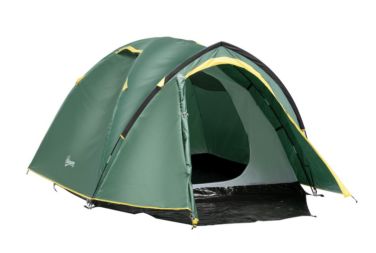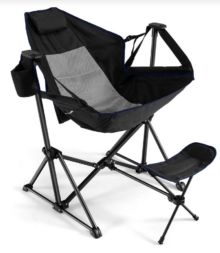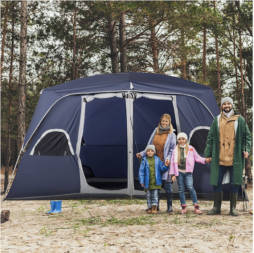
Picture this: a silent, snow-covered landscape, the serenity only broken by the occasional rustle of winter winds. If this sounds like a slice of heaven to you, then winter camping (or cold-weather camping at elevations that don’t warm much in the summer) is worth considering. There’s a certain allure that winter brings when it comes to camping, but even though there are rewards, there are also some challenges you’ll need to prep for. Below are some things to keep in mind to help make your winter camping experience one to remember.
Is camping during winter a good idea?
Camping during winter comes with its share of pros and cons. The unparalleled beauty of snow-covered landscapes and the joy of having campsites almost to yourself make it attractive. But, winter camping requires a higher level of preparedness compared to camping in other seasons. The cold, and often sub-zero temperatures can take away from the experience and be dangerous if you’re not prepared.
There are safety concerns to bear in mind, including potentially hazardous weather conditions, frozen water sources, and the shorter daylight hours. It’s vital to check the weather forecast regularly, learn the signs of hypothermia and frostbite, and always inform someone about your trip details.
However, camping during winter has health benefits too. Exposure to fresh air and sunlight, particularly in the darker winter months, can boost your mood and overall well-being.
Keeping warm: the cornerstone of winter camping

When packing for warmth on your winter camping trip, it’s crucial to bring along plenty of layers for your clothes—from breathable waterproof puff coats to thermal undershirts and leggings. This allows you to adjust your body temperature according to the weather and your level of activity.
Next, you need a sturdy winter camping tent. When picking a tent, ensure it’s designed for winter weather. Winter tents are made to withstand high winds, heavy snow, and low temperatures. They are typically double-layered, with a robust framework, and a high peak to prevent snow accumulation and keep you dry.
A warm sleeping bag is another winter camping essential to maintain your comfort at night. You’ll want to choose a bag with a temperature rating that matches or goes below the lowest temperature you expect to encounter. Pair this sleeping bag with a good-quality insulating sleeping pad to prevent heat loss to the ground.
A camping stove also plays a crucial role in providing heat. Not only does it help cook hot meals and drinks, but it can also be used to melt snow for drinking water or to add a bit of warmth inside your tent. Choose a camping stove that is effective and safe to use inside and outside a tent.
Essential winter camping gear

Besides tents and sleeping bags to keep warm, you’ll need to gear up with additional equipment to make your winter camping trip more comfortable and enjoyable.
- Camping chairs enable you to enjoy the heat of a fire and eat your meals with ease. Look for chairs that are sturdy, insulating, waterproof, and designed for winter use.
- A camping generator can be a game-changer, providing power for lights, heating equipment, or for charging your devices. Choose a generator that’s portable and operates quietly so as not to disturb the tranquility of your surroundings.
- As daylight hours are shorter, lanterns become a crucial part of your gear. Opt for rechargeable LED lanterns as they last longer, are more durable, and provide bright light.
- Always carry insulated water bottles to prevent your water from freezing. Staying hydrated is just as important in winter as in summer.
- In winter, coolers prevent your food from freezing. When packing your cooler, use blocks of ice instead of ice cubes. The blocks melt slower, keeping your cooler’s temperature stable for longer. Pack your perishables near the middle of the cooler, surrounded by ice, to keep them at a safe temperature.
The winter camp checklist
Before leaving your home, pack first aid supplies, a map and compass, sunscreen, a multi-tool, and non-perishable food items. Always carry a whistle for emergencies, and if you’re venturing far off the beaten path, consider bringing a GPS beacon as well. For hikes, make sure to pack waterproof boots and warm gloves. You might also need equipment like crampons for added traction on icy terrain, and gaiters to keep snow out of your boots.

Winter camping is a truly magical experience, allowing you to enjoy the great outdoors in a whole new way. With the right preparation and winter camping gear, you’ll be well-equipped to embrace the winter wilderness. Remember, winter doesn’t have to mean hibernation. It can mean adventure, too. So gear up, stay safe, and happy camping!
This article was drafted using AI technology and then reviewed, fact-checked, and revised by a member of our editorial team.




